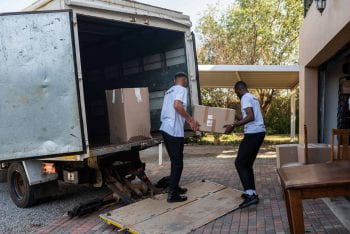Neighborhoods and Education

Addressing Challenges of Student Mobility in St. Louis
Frequent relocation is a pervasive issue hurting educational outcomes for students in the St. Louis Region. While previous research has highlighted the high rates of student mobility in urban areas, little is known about the causes and consequences of these moves beyond changes in housing, as well as where students move in and out of—especially when these moves occur across counties. As a part of the St. Louis Research Practice Collaborative (SRPC) and in partnership with St. Louis University, SPI will use student-level data from Missouri to explore student mobility for a cohort of students from kindergarten to 12th grade across five St. Louis area counties: St. Louis City, St. Louis County, St. Charles County, Jefferson County, and Franklin County. Local practitioners, as well as key stakeholders and policymakers in the area, will then use these findings to inform practices and policies that directly affect St. Louis area students and families.

The collaboration is between Evan Rhinesmith, principal investigator and director of Research and Evaluation SLU PRiME Center; Jason Jabbari, research assistant professor of SPI and co-chair of the SRPC data committee; Harris-Stowe State University, SKIP Design Ed, and the St. Louis Research Practice Collaborative (SRPC). Washington University researchers include Mark Hogrebe, educational researcher and statistician in the Department of Education, Yung Chun, assistant professor of research, and Takeshi Terada, senior data analyst.
This work is generously supported by the James S. McDonnell Foundation.
Neighborhood redevelopment and student achievement
The Choice Neighborhood Initiative (CNI) was created by the Department of Housing and Urban Development in 2009 to redevelop systemically underinvested communities while relocating families to higher-income neighborhoods in the process. However, even after a decade of the program, not much is known about how families make decisions using the CNI and the impacts it has on educational outcomes.
Through a research-practice collaboration in partnership with community organizations and local school districts, the Social Policy Institute is evaluating if and how the Choice Neighborhood Initiative (CNI) reduces racial inequalities in academic outcomes for children and youth. Through a collaboration between practitioners and researchers, the project will inform programs, policies, and on-the-ground practices to reduce racial inequalities in education.
Co-principal investigators include Jason Jabbari, research assistant professor of SPI, Odis Johnson, Jr. professor of social policy at Johns Hopkins University; DeMarcus Jenkins, assistant professor of education policy at The Pennsylvania State University; Michal Grinstein-Weiss, director of SPI; and Yung Chun, research assistant professor of SPI.
This project is a collaboration between SPI and , Saint Louis Public Schools, Shelby County Schools, Seeding Success, and Baltimore City Public Schools.
This project is generously supported by the William T. Grant Foundation.